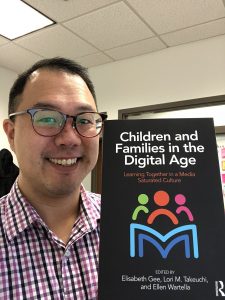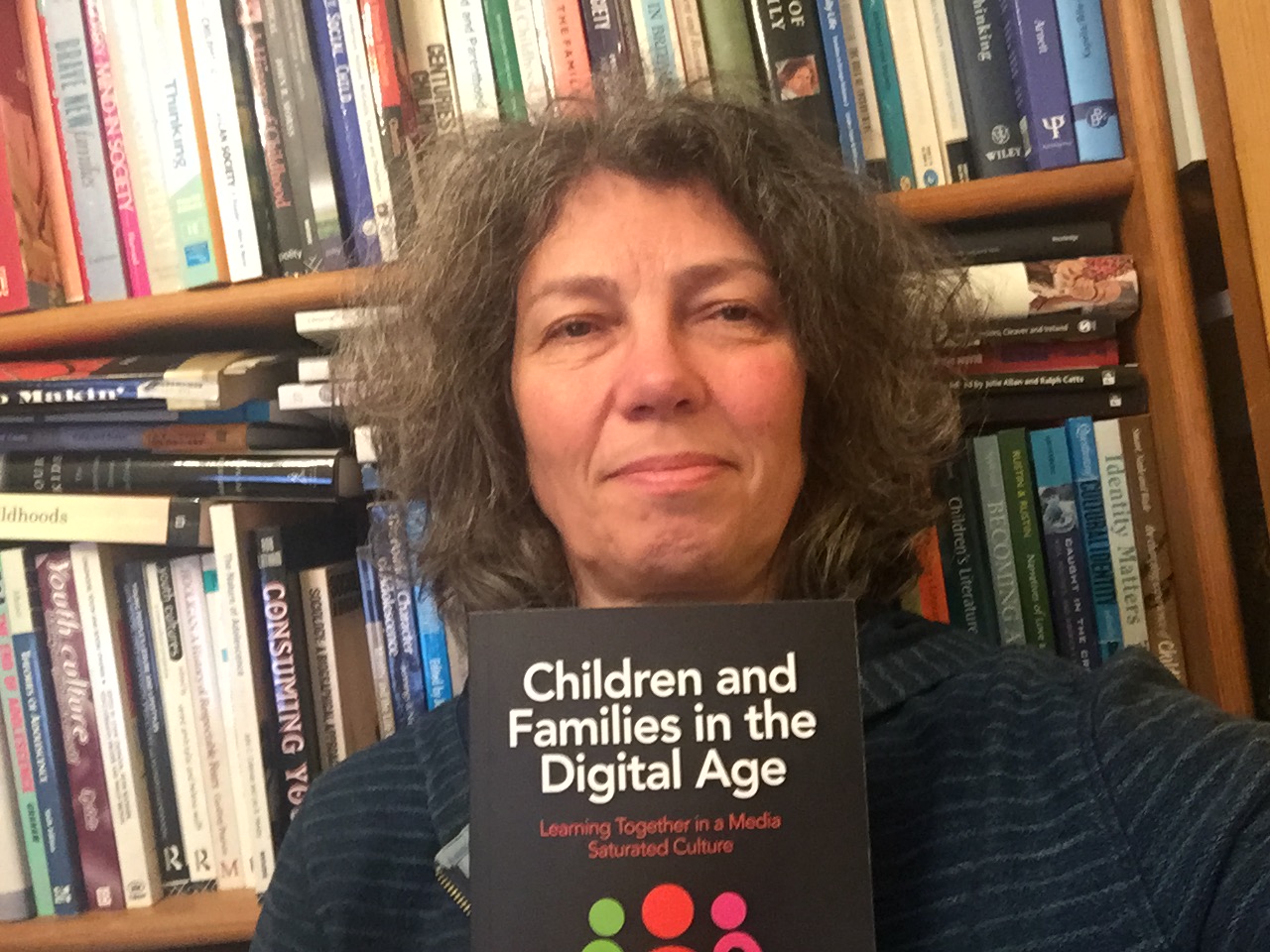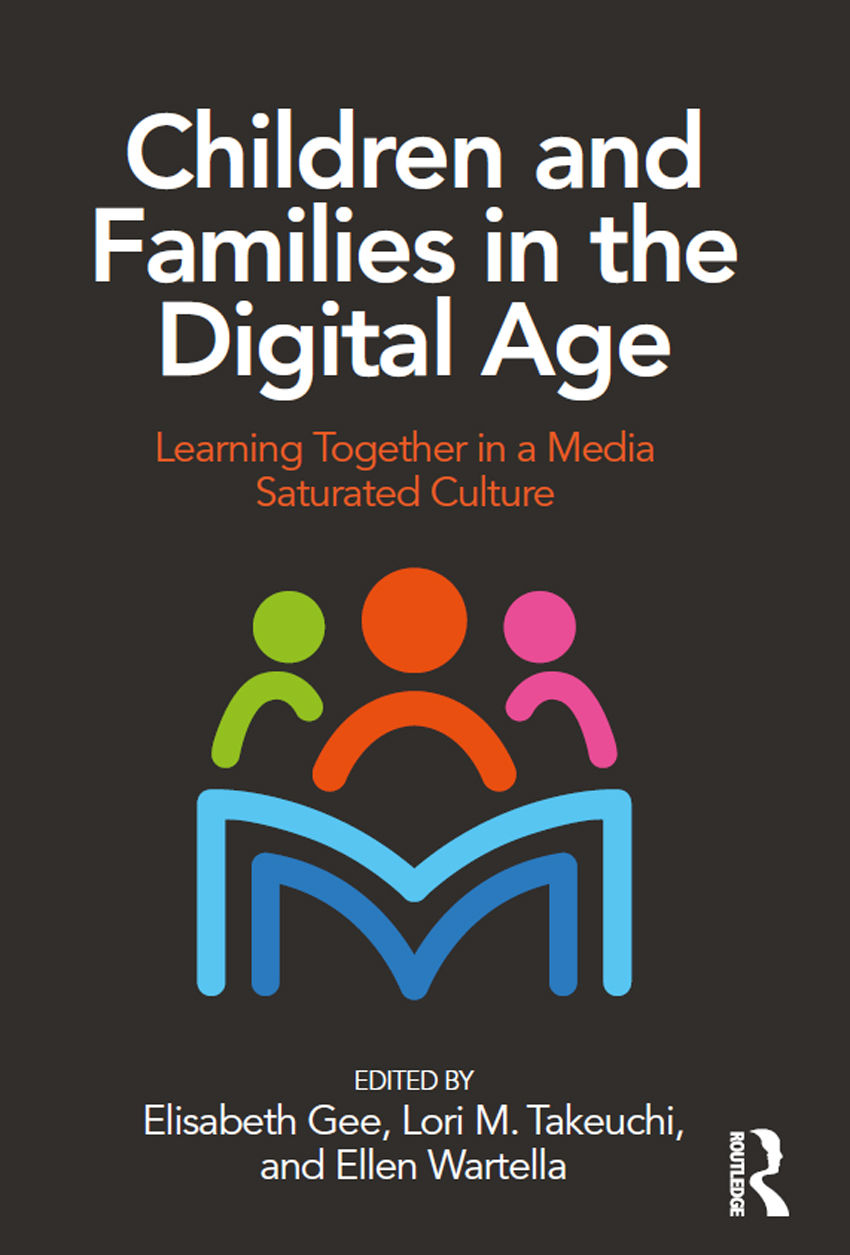How did I become a researcher on children, families, and digital media?

In September 2013, I started as a Cooney Center Research Fellow, trying to find my way in the world.
I was just completing my Ph.D. at the University of Maryland, College Park and had done a dissertation on the development of science ownership in children as they engaged in social media use for science learning. One of the insights from my doctoral work was that the families in my study didn’t know what their children were doing in our after-school science program. I assumed children would be telling their parents about new and exciting insights they got from engaging in kitchen science activities and using iPads to document all that was going on. But according to my interviews, the kids didn’t really say much to their parents. I wondered about this for a while: Why didn’t the children and their parents talk about what was going on? Soon, it occurred to me that it was because we, as design researchers, didn’t actually design for that type of engagement.
Fast forward to the fall of 2013 and my time at the Joan Ganz Cooney Center (JGCC) as a bright-eyed new Research Fellow. I wanted to spend my time at the JGCC thinking more about designing learning opportunities for families. For the next year, Lori Takeuchi had me engage with the Families and Media Project (FAM). As part of my time with FAM, I spent a lot of time with scholars all around the country thinking very deeply about the role that technology plays for intentional and unintentional opportunities for learning.
My time in the FAM group taught me a lot about what it means to study families as a unit, rather than just children. There’s a popular (but false) narrative of children as “digital natives”. This view presumes that children are the experts at using technology, and that adults and children are very different in the ways they engage around technology and media. A lot of research conducted by the FAM group greatly contradicts this myth. In our new book, Children and Families in the Digital Age: Learning Together in a Media Saturated Culture, we delve right in and show that media and technology are not just ancillary parts of family life. Instead, the use of digital technologies and media are greatly intertwined with family routines, learning, values, relationships, and goals. Much of our work dispels the myth of singular positive and negative portrayals of technological interaction.
My contribution to this book was born out of my experience and research on Internet searching habits of children conducted at the University of Maryland. While doing my dissertation, I spent a couple of years working with Allison Druin and Elizabeth Foss on understanding how children search on the Internet. We conceptualized a framework of “search roles” in which children and adolescents take on practices and engagements in online searching. Such roles include visual searchers that depend on pictures and videos for their searches, rule-bound searchers that conduct online searchers with their own rules, and developing searchers who are searching with very little online experience.
As I mentioned before, I spent my time in FAM meeting amazing scholars in the field of families, children, and digital media. Two such scholars were Dr. Vikki Katz (Associate Professor at Rutgers University, Communication) and Carmen Gonzalez (postdoctoral scholar at Rutgers University, now Assistant Professor at University of Washington, Communication School).
During my time with Vikki and Carmen, we found that my prior research for Internet searching had not included the views and perspectives of English language learning families, particularly from lower-socioeconomic backgrounds. Specifically, Vikki’s research on youth as brokers of media and technology demonstrated that the Latino youth in her studies helped their parents search for information on the Internet, but very little was known at the time what that experience was like.
Based on this gap in knowledge, the three of us decided to conduct a pilot study to begin to understand if youth searching the Internet together for their ELL families was a phenomenon worth studying. Turns out, it is. We interviewed 10 middle school youth (ages 11 – 14) from a local school serving a high-needs population of Latinos. In these interviews, we also had the youth engage in online search tasks with a laptop to try to examine how they would search for their parents. We found that youth not only searched for low-priority information (e.g., directions, recipes, shopping), they also needed to help their parents with high-priority information (e.g., health, education, finances). However, youth had to develop creative strategies to navigate the very high level and complex information. Many of the youth expressed that, while they were very close with their ELL parents, online searching and brokering was often filled with tension and pressure.
Overall, my time in the FAM group proved to be very productive in helping me understand more about why families matter when it comes to studying digital technology and learning. For many families, it is about developing meaningful connectivity for learning and understanding the larger role of families when it comes to learning. Today, at the University of Washington, I am an assistant professor of “digital youth”, but I often tell people I focus on “digital families.” My research now focuses on how technology supports collaborative learning between children and their families. I haven’t forgotten my time at the Cooney Center and continue to focus on research projects that push our understanding of how families collaborate together. Both Carmen and I have a Google Faculty Research Award that helped to fund our research on search and brokering in Latino ELL families. We have just wrapped up an in-home study in which we interviewed and conducted search studies with 24 ELL Latino families from lower socioeconomic backgrounds. We hope to continue this work around digital media and families and that the book provides an opportunity to spur ideas, conversations, and new perspectives on why families matter when it comes to learning and digital technologies for children.




